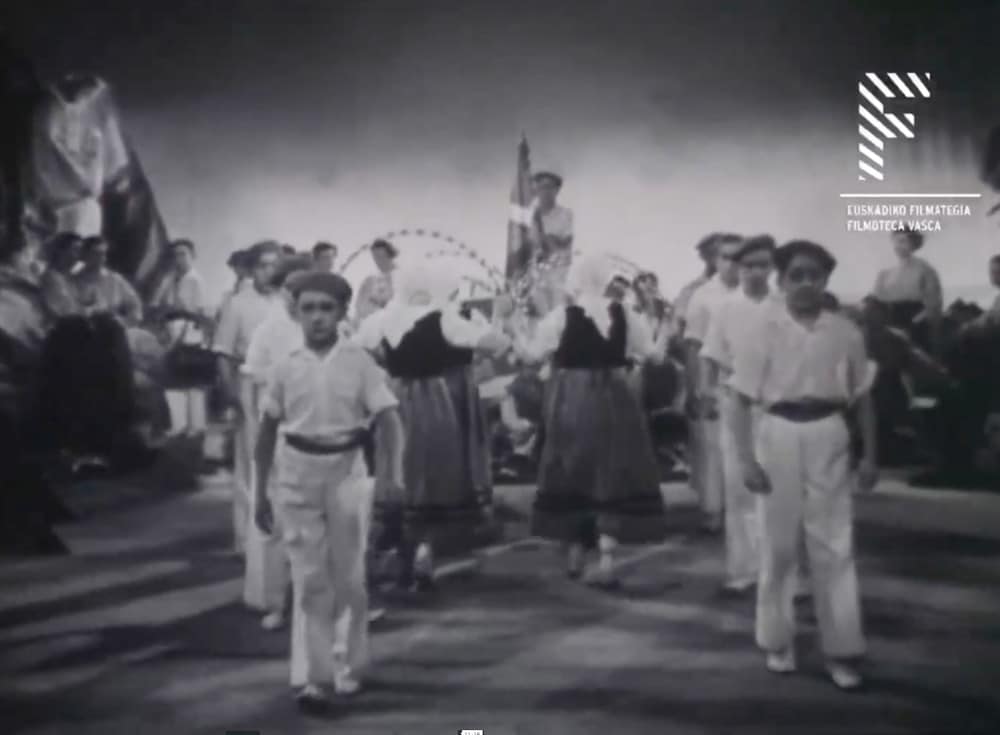This article was translated by John R. Bopp
How excited are we! This is a year of commemorations. Most of them are due to the disasters that the Spanish Civil War brought to the Basques south of the Pyrenees. But even amongst all that horror that divided and destroyed the Land of the Basques, we can find small gestures that can help keep civilization and dignity in the worst circumstances.
These are many small, intimate gestures that kept good people from turning bad. These gestures usually get lost among the noise, except for those who were close by. But there are others which are collective, and which become elements that show off what a society is made of, and the way that it faces those worst circumstances.


This Sunday, on the “Txirrita” program on France 3 TV, which is headed by Allande Boutin, is going to dedicate its program to one of these cases, one which for us is especially meaningful. We’re referring to the birth and work of the Eresoinka group throughout Europe in defense of the cause of the Basque people and Democracy using the pop culture of our nation, its songs and dances, as its only weapon.
As the blurb for the program says:
“After Bilbao was taken by Franco’s troops in June of 1937, the president of the Basque republican government, José Antonio Aguirre, a refugee in Santander, Cantabria, decided to create a national ballet and a professional mixed chorus.
And incredible story, this of the chorus and those artists who went on tour between 1937 and 1939, and became ambassadors for the Basque Country, providing a cultural response to the fascist uprising in Spain.”
That group of a hundred singers, dancers, and musicians, refugees in France, based their operation in the small town of Sare, inside the Basque Country, but on the safe side of the Pyrenees from fascism. There, as Basques among Basques, they prepared the show that would spread the image of the Basque Country and those who were fighting for it against fascism throughout Europe between 1937 and 1939.
As Lehendakari Aguirre himself explained in his book, “Escape via Berlin: Eluding Franco in Hitler’s Europe”:
“We wanted to show how the Basque soul that had been sacrificed to totalitarianism still lived, and we organized newspapers, magazine, and plays. When I was still in Santander, three days before its fall, I called a notable Basque musician and told him: it’s possible that we may not be able to leave here, but that should not end the fight that I also want to be carried out on the artistic front…”
We’ve already spoke about them on many occasions, especially in the article where we discussed a documentary filmed at the time on their work. It’s an extremely valuable and emotional documentary that we share whenever we get a chance.
Filmoteca Vasca – -Euskadi
Elai-Alai (1938)
Elai-Alai from Filmoteca Vasca on Vimeo.
(Continue)
France 3 – 5/2017 – Francia
80 ans après, hommage à Eresoinka, la voix d’Euskadi
Une histoire incroyable ! Celle de cette chorale et de ces artistes qui assureront une tournée entre 1937 et 1939, et deviendront les ambassadeurs d’Euskadi, donnant une réponse culturelle au soulèvement fasciste en Espagne.
(Continue) (Automatic Translation)
Broadcast: Sunday, May 14 at 10:45 on France 3
Last Updated on Jan 5, 2023 by About Basque Country





